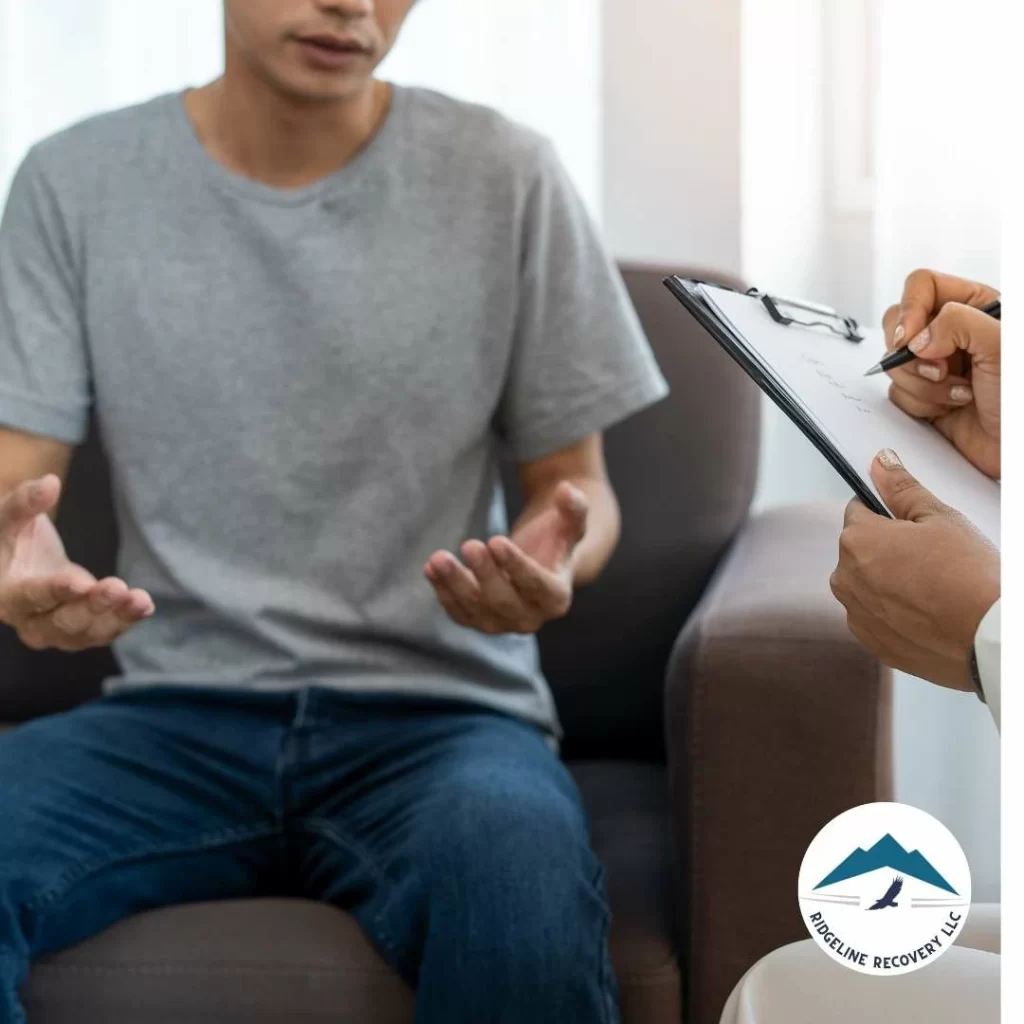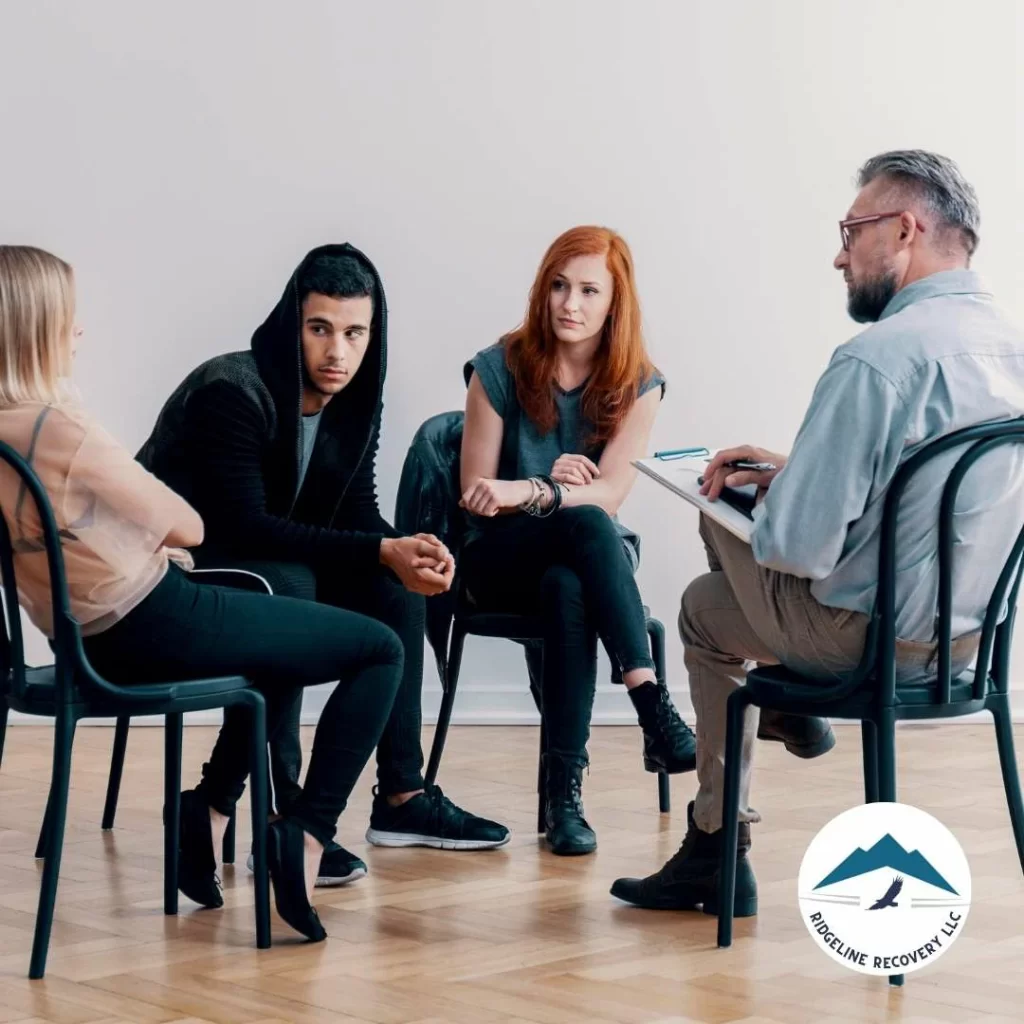Addiction cannot be fought on your own. I have known since I visited that place. Addiction Therapy taught me one thing: your circumstances can support or impede your recovery, even if the battle with drug addiction can appear alone. When I first started down the road to recovery, I didn’t understand the need of creating motivating surroundings. It was about rebuilding my life with the suitable kind of people, surroundings, and support systems around me, not merely about cleaning.
I want to share with you my experience—how I came to surround myself with people who helped me in recovery—and how often little choices actually matter. While my narrative is not unique, it could especially speak to you if you or a loved one is fighting addiction. Thanks to the environment I designed, Addiction Therapy Services enabled me to see not only could I change but also I could flourish.
The Moment I Realized I Needed Help
Recognizing the Need for Addiction Therapy
Years ago, I convinced myself I was in charge of my addiction. Time after time I discovered I was returning to the same damaging habits, but I felt I could quit whenever I wanted. I felt ashamed, powerless, and—very frankly— afraid. I realized something had to change only after I came to rock bottom. It was about getting competent therapy with Addiction Therapy Services, not merely about will-power.
Knowing I had to decide on the right addiction treatment center, I began researching Living in Ohio, I looked for locations offering addiction treatment in Columbus Ohio and came upon a well-known clinic. The general attitude of this particular institution drew me in. I was looking for a method to change my life and rebuild in a way that encouraged long-term recovery—not merely about quitting drugs.
The people, the places, the daily events in my surroundings nourished my addiction. If I wanted to break free, I had to find another environment encouraging recovery. I decided then to explore addiction treatment.

Taking the First Step: Choosing the Right Treatment Center
Choosing the right facility for Columbus addicts was not an easy decision. Even if there are many options, I wanted somewhere that felt correct for me. I sought for a facility offering not just detox but also long-term addiction rehabilitation support. Investigating more helped me to see the need for a complete approach to addiction treatment.
At last, the addiction treatment center Columbus I chose focused on creating a safe, motivating surroundings for recovery. Their focus went beyond just getting me clean to include empowering me with the tools to lead a life free from addiction. Their program included everything from group support to individual therapy, thereby allowing me to contact people experiencing similar difficulties. Most importantly, they let me understand that recovery was more about creating surroundings that would enable my sobriety for the rest of my life than about just giving up drugs or alcohol.
The Power of Environment in Addiction Therapy
The Role of Physical Space in Addiction Recovery
When I initially arrived at the Addiction Recovery Center Columbus, I was drawn to its peace and calm. From the anarchy I had been living in, the physical surroundings seemed reassuring. I had no concept at the time how much my surroundings directly fueled my addiction. Triggers that kept me from being clean penetrated my house, my profession, and the places I visited for hanging out.
We worked in therapy detecting these environmental triggers. From the couch I used to sit on when drinking to the music I listened to, everything had come to be connected with my drug use. Until I started working on these aspects of my life, I had no idea how much my surroundings shaped my addiction. The best addiction treatment center in Columbus let me realize that changing my surroundings will help me in long-term recovery.
Transforming My Home into a Safe Space
I knew modifications were required once I understood the value of my surroundings. The counselors at the Columbus Ohio Addiction Treatment Center helped me to create a plan for transforming my residence into a venue for helping me to stay sober. This meant I had no need to move to a new place or toss anything I possessed. Instead, it was about making small but noticeable changes to give my house the impression of a safe refuge for recovery.
I started by cleaning the items and products linked to my drug use. This covered drug paraphernalia, alcohol bottles, and even some furniture that triggers memories of my addiction. I filled in for them with healing-oriented plants, artwork, and a meditation space. My house became a place where I could heal emotionally as much as physically.
Social Environment: The People Around You Matter
Finding Support Through Group Therapy: Addiction Therapy
Among the most valuable aspects of my stay at the finest addiction recovery center Columbus was group therapy. Years of trying to quit my addiction on my own soon became clear that recovery is not something one can do on their own. The people close by greatly determine your success. Group therapy enabled me to meet people going through the same challenges I was. We supported each other, swapped tales, and worked out together how to navigate the rigors of sobriety.
From the community I came into in Columbus’s drug recovery center, my second family developed. These were people who knew what I was going through and who wanted to see me succeed. I was no longer by myself. We came to see clearly the need of surrounding ourselves with individuals dedicated to our recovery. Maintaining hygiene and commitment to my sobriety called for this supporting network.
Letting Go of Toxic Relationships
One of the hardest parts of recovery was realizing some of the people I had surrounded me with were feeding my addiction. Admitting it hurt, some of my closest friends were encouraging of my drug use. If I was going to stay clean, I had to make the difficult decision to split off from these deadly relationships.
The Addiction Center Columbus led me to this taxing path. Therapy enabled me to set boundaries and protect my sobriety by steering clear of events and people that might set off a relapse. While challenging, this was very necessary. By letting go of toxic relationships, I created space for new, healthy relationships supporting my recovery.

Family Support in Addiction Recovery
Rebuilding Family Relationships: Addiction Therapy
Addiction affects family members as well as everyone else around a person who uses drugs. My addiction substantially interfered with my relationships to my loved ones. A lot of bitterness, hurt, and mistrust had grown over years. But we began the healing process with family therapy at the best addiction recovery center Columbus has available.
Family therapy was passionate, directive, and even embarrassing. Still, it was really healing as well. My family discovered how to be honest and open about my problems and how to support me without feeding my addiction. We rebuilt the collective trust that had been eroded. This was really vital for my recovery as my capacity to stay clean depends much on the help of my family.
Creating a Family Support System: Addiction Therapy
My family and I focused on creating a house where I could recover after treatment. This meant some changes, including specifying exactly how we would handle triggers and excluding alcohol from the house. But it was about building a healthy, motivating environment where I could keep healing—not merely about removing negative influences.
Emphasizing the need of family support in addiction rehabilitation, the best addiction treatment facility in Columbus underlined It can all make difference to have loved ones committed to your success. My family became my primary support, and my recovery would have been much hampered without their support.
Ongoing Support After Treatment
Continued Therapy and Support: Addiction Therapy
Your rehabilitation ends with leaving therapy. The real work begins, actually, when you return to your everyday life. Following my first treatment, the best addiction recovery facility Columbus offered kept me under constant therapy and support so I could stay on goal. I continued attending group and individual therapy sessions where I could share my challenges and obtain advice on maintaining my sobriety.
Among other things, the addiction therapy center Columbus taught me that recovery is an ongoing lifetime journey. Though there is no “cure” for addiction, there are tools and strategies meant to help you stay clean. For me, ongoing therapy was absolutely essential since it gave me a platform to keep working on my recovery even after my first course of treatment was ended.
Creating a Relapse Prevention Plan: Addiction Therapy
The best counselors Columbus had helped me create a relapse prevention plan for my ongoing treatment. This method was supposed to help me identify likely triggers and design strategies for either avoiding or regulating them. From tension at work to a family conflict to running across an old friend from my days, my relapse prevention plan gave me the tools I needed to stay sober.
This kind of preparation empowers one. My addiction no longer seemed to be benefiting me. I was committed to getting well and had a clear road map for overcoming difficult situations. Along with ongoing treatment, this approach has been really successful in maintaining my sobriety over the long haul.
Building a New Social Circle
The Importance of Positive Relationships
Among the difficult things I came across during my recovery was the need for solid relationships. I surrounded myself for years with people either aware or unconscious drug users. They were acquaintances, neighbors, even relatives who embraced bad behavior. If I were to welcome a fresh life free from addiction, I had to make the difficult decision to cut off these relationships.
Tools and guidance on building a fresh social network encouraging sobriety were provided by the Columbus addiction recovery facility. They underscored my route and the need of surrounding myself with people who could assist me reach my goals. I started visiting outside of the treatment center support groups where I met others committed to their recovery. These interactions were priceless; they provided the insight and sense of belonging I had long yearned for.

Engaging in Community Activities
I realized as I began building this new social network how much community service would aid in recovery. I started volunteering at local non-profit organizations and attending neighborhood activities. Being in a happy, healthy environment not only prevented cravings but also provided direction.
By means of community work, I encountered individuals from many backgrounds who shared the same commitment to personal growth. Many of these people, I discovered, had personal struggles and successes that strengthened friendship. Speaking with others dedicated to building a better future energized me.
Developing Coping Strategies
Managing Stress and Triggers: Addiction Therapy
Among the main components of my recovery was good stress and trigger control. The Columbus addiction therapy clinic provided me with numerous coping strategies to handle daily challenges without resorting to drugs. I remember having paralysis from worry during my first several months of sobriety. Under duress, it was easy to turn back to former habits.
First, my therapists instructed me in mindfulness and relaxation techniques including meditation and deep breathing exercises. I was dubious at first. Never one to still and empty my brain. After a few sessions, though, I discovered that these strategies kept me focused and far less nervous. I adopted these techniques into my everyday routine and made them tools to combat stress whenever it surfaced.
Journaling as a Healing Tool
Maintaining a notepad proved to be also useful. The therapists at the finest addiction therapy center Columbus advised us to write about our ideas and experiences in order to help us process emotions. Every day I started to keep a diary in which I wrote my difficulties, achievements, and little daily pleasures.
One release for therapy turned into writing. I could examine my tendencies, think about my route, and honor my growth. Writing enabled me to find triggers and obtain clarity so that I may design strategies to stay away from them. It also made me realize how far I had come—a critical element of maintaining drive in therapy.
Embracing a Healthier Lifestyle
The Role of Nutrition in Recovery: Addiction Therapy
One area of my life I had not given much thought until beginning addiction therapy is nutrition. I neglected my health during my drug use. My diet consisted of processed foods, takeaway, and sugary snacks; none of these gave my body any good nutrition. Early on in treatment, I learned how important a healthy diet is for both physical and mental wellness.
The team of the Addiction Recovery Center Columbus first offered me nutritional counseling and also showed me how the right meals may help me in recovery. I began eating more whole grains, fruits, and vegetables and picked up making healthy dinners. These changes improved my mental clarity and emotional stability as much as my physical state.
Incorporating Physical Activity: Addiction Therapy
Exercise became still another essential element of my road of recovery. Although I had always struggled to maintain a regular workout program, the benefits of physical activity were obvious. The counselors advised us to choose activities we enjoyed, including yoga, dance, even hiking.
Starting group workout classes at a local gym, I became interested in kickboxing. Early on in my recovery, the endorphins produced by exercise greatly helped me to relax and change my mood. Moreover, physical exercise gave me a chance to socialize in a clean surroundings, reinforcing my determination to be sober.

Setting Goals for the Future
Short-Term and Long-Term Goals
As I became used to my new life, I began to think ahead and set objectives for myself. First, my primary goal was simply to remain sober. But over time, I realized I wanted to grow rather than live simply.
My therapists helped me to develop both long-term and short-term objectives. Among the short-term goals were maintaining my exercise regimen, showing up for regular therapy visits, and making new friends. Long-term goals included creating a career, ongoing education, and returning the favor to others fighting addiction.
Breaking up my objectives into achievable steps made me feel strong. Every small victory—from completing a workout to attending a social event to supporting others—gushed confidence and sharpened my determination to recover.
Celebrating Milestones
In recovery, celebrating successes is really important. Beginning with small celebrations—going out to dinner with friends, treating myself to a new book, or weekend trip to enjoy nature—I began tracking my sober days. Knowing these goals motivated me and made me appreciate the progress I was making.
The Columbus addiction therapy clinic underlined the significance of valuing even minor achievements. This habit motivated me to keep on and made me happy with my road.
The Lifelong Journey of Recovery
Understanding Recovery is a Process
I came to see that the road of recovery is one with ups and downs instead of a straight line. There were days when I felt on top of things and days when I battled strong emotions or impulses. Throughout those trying times, remembering the tools I had acquired throughout therapy was absolutely vital.
Setbacks are unavoidable, the addiction treatment center Columbus taught me, and they do not define my road forward. Instead of considering them as failures, I began to see opportunities for learning and growth. Every challenge lets me think about what triggers my emotions and how I might respond differently moving ahead.
Ongoing Support Networks: Addiction Therapy
As I grew in recovery, I maintained counting on the support systems I had developed. I maintained ties with my therapist, went to support groups, and participated actively in neighborhood events. These relationships were my safety net, guiding and sympathetically supporting me through difficult situations.
I also sought mentoring opportunities and offered to assist freshly recovering individuals. Sharing my tale and helping others negotiate their difficulties was quite fulfilling. It reminded me of how far I had gone and sharpened my will to be sober.
Conclusion: Your Path to Recovery Begins Here
Establishing a suitable environment for effective Addiction Therapy asks for a multimodal strategy including physical space modification, relationship building, coping mechanisms development, and adoption of a healthy lifestyle. My road has shown me that recovery is not a lonely struggle; it depends on community, support, and a determination to improve.
If you or someone you know suffer with addiction, start that first path toward recovery. See a professional, look into Columbus’ addiction treatment centers, and choose a community prepared to support your path of recovery. Remember: you are not by yourself experiencing this. Working together, we can create an environment that encourages recovery and a good life free from addiction.
Call Us Now!
Get in touch with Ridgeline Recovery Center in Columbus Ohio right now if you or a loved one is looking for help with heroin or alcohol dependency. At Ridgeline Recovery’s Addiction Recovery Center in Columbus, Ohio, we offer hope and healing. With services like Medicaid, MAT, Counseling, IOP, Mental Health Services, and aftercare programs, we guide you towards recovery and a brighter future.
For more stories and information Contact Us, visit our Blog page and Stories & Highlights.
